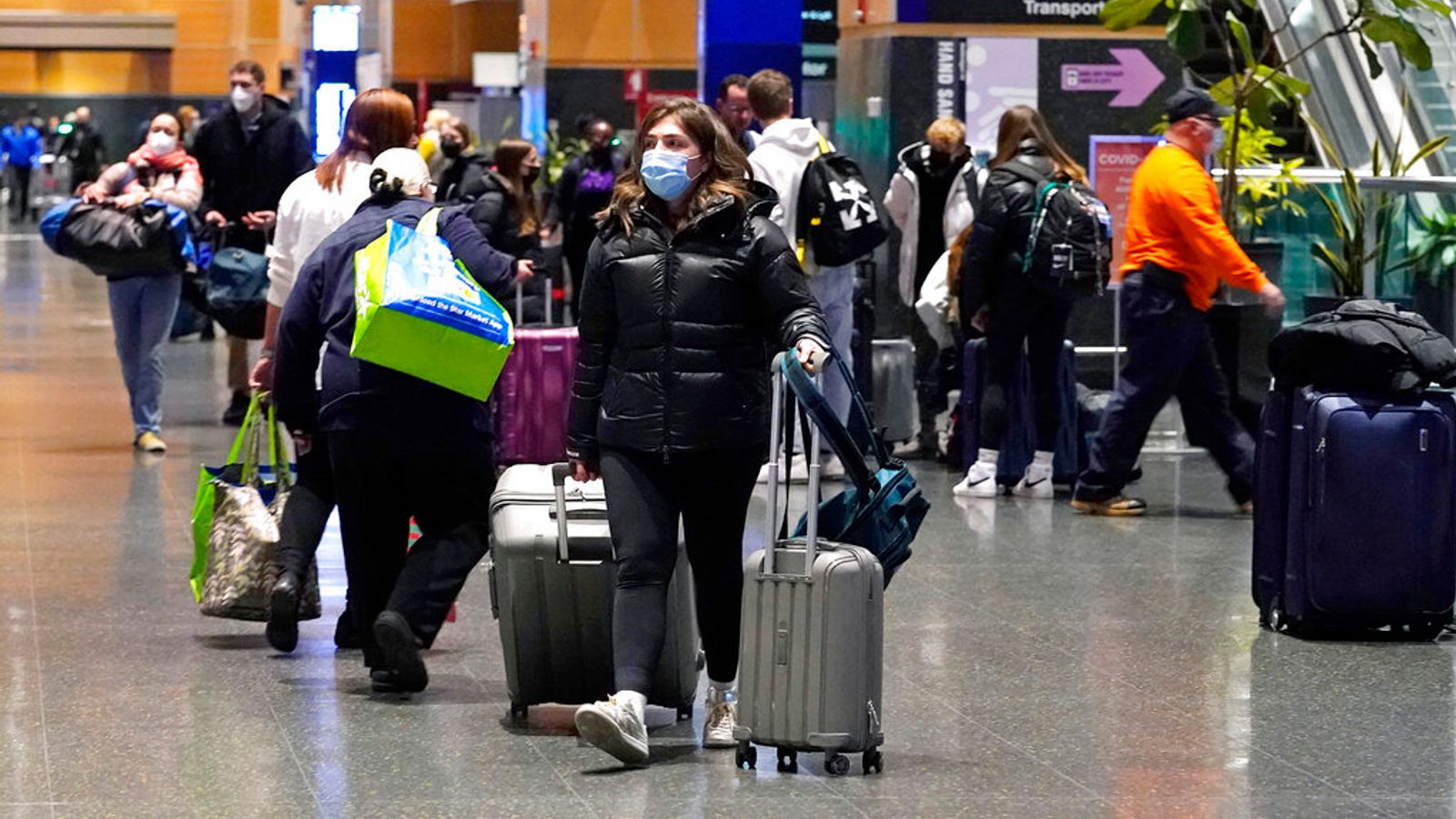At least 4,500 flights have been cancelled worldwide over the Christmas weekend, with the Omicron variant causing chaos for travellers.
Globally on Christmas Eve there were 2,401 flights cancelled and 10,000 delayed as operators struggled with staff absences.
According to the online flight tracker FlightAware.com, 1,779 routes were not scheduled to operate as planned on Christmas Day, with a further 409 down on Boxing Day.
More than a quarter of all global flights cancelled were in and out of the United States, with United Airlines and Delta among the worst affected carriers, cancelling 280 flights in total on Friday.
The Omicron variant is causing COVID cases to surge across the States, with the new, more transmissible strain now accounting for more than 75% of cases nationwide.
New York reported more than 44,000 new infections on Christmas Eve, the highest daily number for the state since the pandemic began.
On Thursday and Friday at least 10 other states reported record-breaking infection numbers.
COVID-19: New coronavirus restrictions ‘could be in place until late March’ under measures examined by scientific advisers
Maskless Pope Francis urges faithful to look ‘beyond the decorations’ as he celebrates Christmas Eve Mass
COVID-19: Christmas Eve footfall drops over 30% in central London amid fears about Omicron spread, new data shows
Follow the Daily podcast on Apple Podcasts, Google Podcasts, Spotify, Spreaker
New York City authorities have restricted numbers allowed to attend traditional New Year’s Eve celebrations in Times Square, with dozens of Broadway shows, including Hamilton, cancelled due to staff sickness.
The Midwest is among the US regions hardest hit by COVID, with intensive care units in Indiana, Ohio and Michigan bracing themselves for an even harder winter – as they struggle with Delta and Omicron cases.
As the festive season ends, President Joe Biden will lift existing travel restrictions on eight countries in southern Africa where Omicron was first identified.
Scientists have repeatedly said that border restrictions are largely futile to stop the spread of a new global variant once cross-country transmission has begun.






















